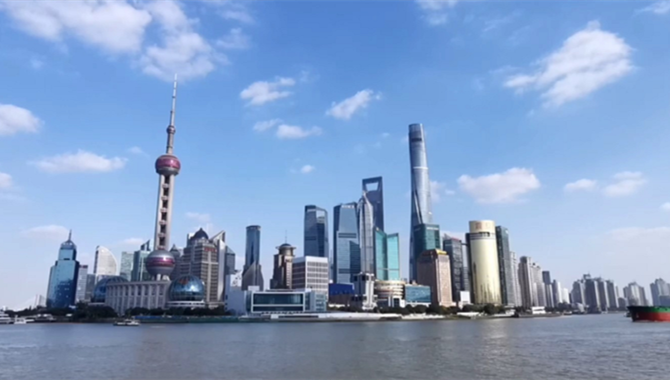
In order to strengthen the prevention and control of ship pollution, protect the ecological environment, and promote the construction of ecological civilization, in accordance with relevant laws and administrative regulations such as the Yangtze River Protection Law of the People's Republic of China, the Law of the People's Republic of China on the Prevention and Control of Water Pollution, the Law of the People's Republic of China on the Protection of the Marine Environment, the Regulations on the Management of the Prevention and Control of Ship Pollution, the Shanghai Municipal and Jiangsu provincial government issued local supporting regulations on the prevention and control of ship pollution, i.e. Regulations of Shanghai Municipality on the Prevention and Control of Ship Pollution (adopted on December 21, 2022) and Regulations of Jiangsu Province on the Prevention and Control of Ship Pollution in the Yangtze River (adopted on November 25, 2022) (hereinafter referred to as the “Regulations”). Both Regulations have come into force as of March 1, 2023.
General Introduction
The two Regulations respectively set the obligations for relevant subjects, including ships, port operators, ship repair yards, and bunker suppliers, regarding prevention and control of water and air pollution from ships, prevention and control of pollution from ship operations and ship emergency response, as well as the legal liabilities for violation of the Regulations. The regional cooperation mechanism of the Yangtze River Delta has been clarified. Shanghai will strengthen communication and coordination with relevant provinces in the Yangtze River Delta region, such as Jiangsu Province, to negotiate and solve major issues of ship pollution prevention and control, and to promote regional cooperation in ship pollution prevention and control.
Applicable Waters
The applicable waters of Shanghai Regulations shall be: the navigable waters of Shanghai and the port waters under state authorized management (collectively referred to as the waters under the administration of Shanghai).
The applicable waters of Jiangsu Regulations shall be: the Yangtze River Waters in Jiangsu Province, which refers to Yangtze River main stream waters, including main stream bypaths, short-cut routes and its connecting harbor basin waters.
Main Provisions Relating to Ships
For the convenience of the Clubs/Members, we summarize the main ship-related provisions of the two Regulations and offer our comments as below. We find them basically consistent with international conventions, domestic laws and regulations. Ships’ sailing, berthing, and operating in waters under the administration of Shanghai or the Yangtze River in Jiangsu Province shall comply with relevant regulations. In addition, some provisions of regulations are specific to Chinese inland ships and are not applicable to ships on international voyages. Therefore, these provisions are not cited or explained in this Circular.
The Obligation of Ships
1. Ships with shore power connection facilities shall use shore power.
Huatai Comments: This requirement is mentioned in both Regulations, requiring terminals, loading/unloading station, waterborne service areas with shore power supply ability, shall provide shore power to ships able to use shore power (except for ships carrying bulk liquid dangerous cargo, ships using new and clean energy such as electricity, LNG as power, or taking other equivalent measures such as shutting down auxiliary engines).
In accordance with the Regulations, in the Yangtze River waters of Jiangsu Province, ships using shore power can be given priority berthing, and the service fee for shore power can be reduced or exempted. In waters under the administration of Shanghai Municipality, if shore power does not cover all berths, the port operator shall firstly arrange shore power berths for vessels with shore power receiving facilities for their port operation in accordance with the regulations.
Regarding the specific conditions and requirements for the use of shore power, we recommend that ships confirm with the ship agent before arriving at the port.
2. The bunker used by ships shall meet specified quality standards, and the bunker delivery note shall be kept for 3 years. The bunker samples shall be kept for 1 year.
Huatai comments: The requirement is consistent with paragraphs 6 and 8.1 of Regulation 18, Annex VI, MARPOL Convention on the retaining period of bunker delivery note and bunker sample, which shall be strictly complied with.
3. Those engaged in loading, unloading and lightering bulk liquid cargo with the hazard of pollution shall confirm the relevant pollution prevention measures with the joint operator before the operation, and the measures shall be strictly implemented during the operation.
Huatai comments: Before loading, unloading and lightering operations for bulk liquid cargo with the hazard of pollution, the pollution prevention measures shall be confirmed with the joint operators (such as the other ships, terminals, loading/unloading stations, etc.). And the measures shall be strictly implemented during the operation. The ship-shore safety checklist signed by both parties, the ship-to-ship lightering inspection checklist or the cargo transfer/bunkering pollution prevention inspection checklist prepared by the ship management company for its own fleet can serve as a proof of confirmation of pollution prevention measures taken prior to operation.
4. Those engaged in loading, unloading, and lightering of cargoes emitting toxic and harmful gases or dust substances shall take measures with the joint operators to recover toxic and harmful gases and suppress dust during the operation.
Huatai comments: Crude oil ships may emit volatile organic compounds during cargo operation. Some toxic chemicals may emit toxic and harmful cargo vapors during loading, unloading and lightering operations. For ships equipped with Vapor Emission Control System (VECS) and terminals with cargo vapor recovery capability, both parties should work together to conduct closed cargo operations in order to reduce the harm to the environment and human bodies.
5. Owners, Operators or Managers shall formulate an emergency plan for pollution prevention and drills shall be organized. In case of a pollution accident, the emergency plan shall be launched immediately and such accident shall be timely reported to the competent department in charge of ship pollution prevention and control
Huatai comments: Ships shall regularly organize pollution prevention emergency drills in accordance with the requirements from the international safety management code and the ship safety management system to improve crews’ emergency response skills. In case of a pollution accident, the emergency plan shall be activated immediately in accordance with the shipboard oil/marine pollution emergency plan and the accident shall be reported timely to the competent department in charge of prevention and control of ship pollution.
6. When international ships are discharging ballast water, treatment devices or other equivalent measures shall be adopted to inactivate the ballast water, to ensure that the discharged ballast water meets the requirements. And report shall be made to the competent department in charge of pollution prevention and control of ships in accordance with regulations before discharging. International sailing vessels are prohibited to discharge ballast water that fail to meet the requirements.
Huatai comments: Ships on international voyages should use ballast water treatment devices to inactivate the discharged ballast water and report to the competent authority for the prevention and control of ship pollution. The report forms can be obtained from the ship agent.
7. If the Exhaust Gas Cleaning System is used, the washing water and residues generated shall be disposed of in accordance with the Regulations, and the records shall be kept. Illegal discharge is prohibited.
Huatai comments: According to the Implementation Scheme of the Global Marine Fuel Oil Sulphur Limit by 2020 issued by the Maritime Safety Administration of the People's Republic of China, ships are prohibited to discharge washing water generated by the Open Loop Exhaust Gas Cleaning System in the Domestic Emission Control Areas for Vessels in China as of January 1, 2020.
8. Ships shall strengthen the repair and maintenance of the main engine and auxiliary equipment, and use fuel that meets the national standards or requirements. The exhaust emission shall comply with the national air pollutant emission control requirements and shall not emit easily visible black smoke.
Huatai comments: This requirement is mentioned in the Regulations of Jiangsu Province on the Prevention and Control of Ship Pollution in the Yangtze River. Main engine and auxiliary equipment shall be maintained in strict accordance with the manufacturer’s instructions and ship’s PMS to ensure they are in good working condition. No easily visible black smoke shall be emitted.
Prohibitions:
1. Sewage and oily water that are untreated or fail to fulfill discharge standard even after treated are prohibited from discharging into water bodies. Ships are prohibited from discharging sewage and oily water into Huangpu River and Suzhou River, and are prohibited from discharging oily water into other inland navigable waters.
Huatai comments: When sailing in Chinese waters, sewage and oily water shall be discharged in accordance with the Discharge standard for water pollutants from ships (GB3552-2018). Higher discharge requirements are set for water areas such as Huangpu River and Suzhou River, where the discharge of sewage and oily water from ships is prohibited regardless of whether they are treated or not.
2. Ships are prohibited from sounding whistles in the waters between Yangpu Bridge and Xupu Bridge on the Huangpu River and the inland navigable waters within the Shanghai outer ring road, except that navigation safety is endangered and sound devices should be used in accordance with Regulations for preventing collisions.
Huatai comments: Navigation safety is the first priority, and do not sound whistles unless necessary.
3. Ships without double-bottom and double-hull carrying bulk liquid dangerous cargoes are prohibited from berthing or operating in the main stream of the Yangtze River in Shanghai, Huangpu River, other inland navigable waters and the Yangtze River in Jiangsu Province.
Huatai comments: Single-hull tankers carrying bulk liquid dangerous cargo have been phased out both internationally and domestically. Ships carrying bulk liquid dangerous cargo berthing and operating in the waters under the administration of Shanghai and the Yangtze River in Jiangsu Province must be constructed as double-bottom and double-hull.
4. Vessels are prohibited to use incinerators in navigable waters in this city (Shanghai) and port waters under state authorized management.
Huatai comments: As a common practice on board, incineration will not be conducted at ports. This provision is a local rule. Ships should pay attention to stop operating incinerators in the navigable waters of Shanghai and port waters under state authorized management.
5. Ship carrying goods that tends to emit toxic and harmful gases cannot take ventilation as a substitute method to cargo hold washing.
Huatai comments: This article is applicable to the Yangtze River of Jiangsu Province. The purpose of this provision is to prevent air pollution and damage to human health caused by cargo vapor. We suggest that the cargo residues in the cargo hold removed by ventilation method in accordance with the relevant provisions of Annex II, MARPOL Convention after sailing out of Yangtze River and the waters under the administration of Shanghai.
Source: HUATAI
The opinions expressed herein are the author's and not necessarily those of The Xinde Marine News.
Please Contact Us at:
media@xindemarine.com


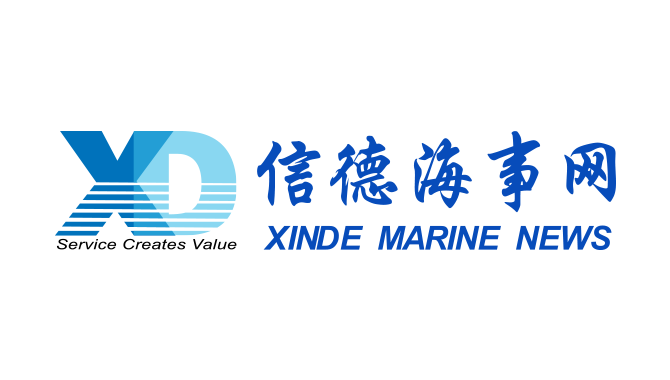 Reporting Requirements for Foreign-flagged Ships En
Reporting Requirements for Foreign-flagged Ships En 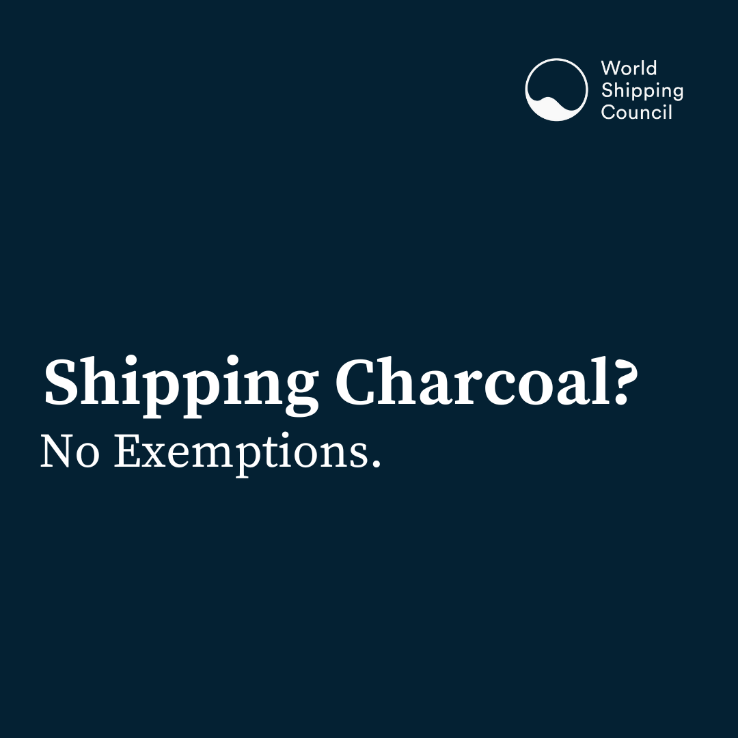 Shipping Carriers Move to Prevent Deadly Charcoal F
Shipping Carriers Move to Prevent Deadly Charcoal F  KR, HD KSOE, HD HHI, KSS Line, and Liberian Registr
KR, HD KSOE, HD HHI, KSS Line, and Liberian Registr 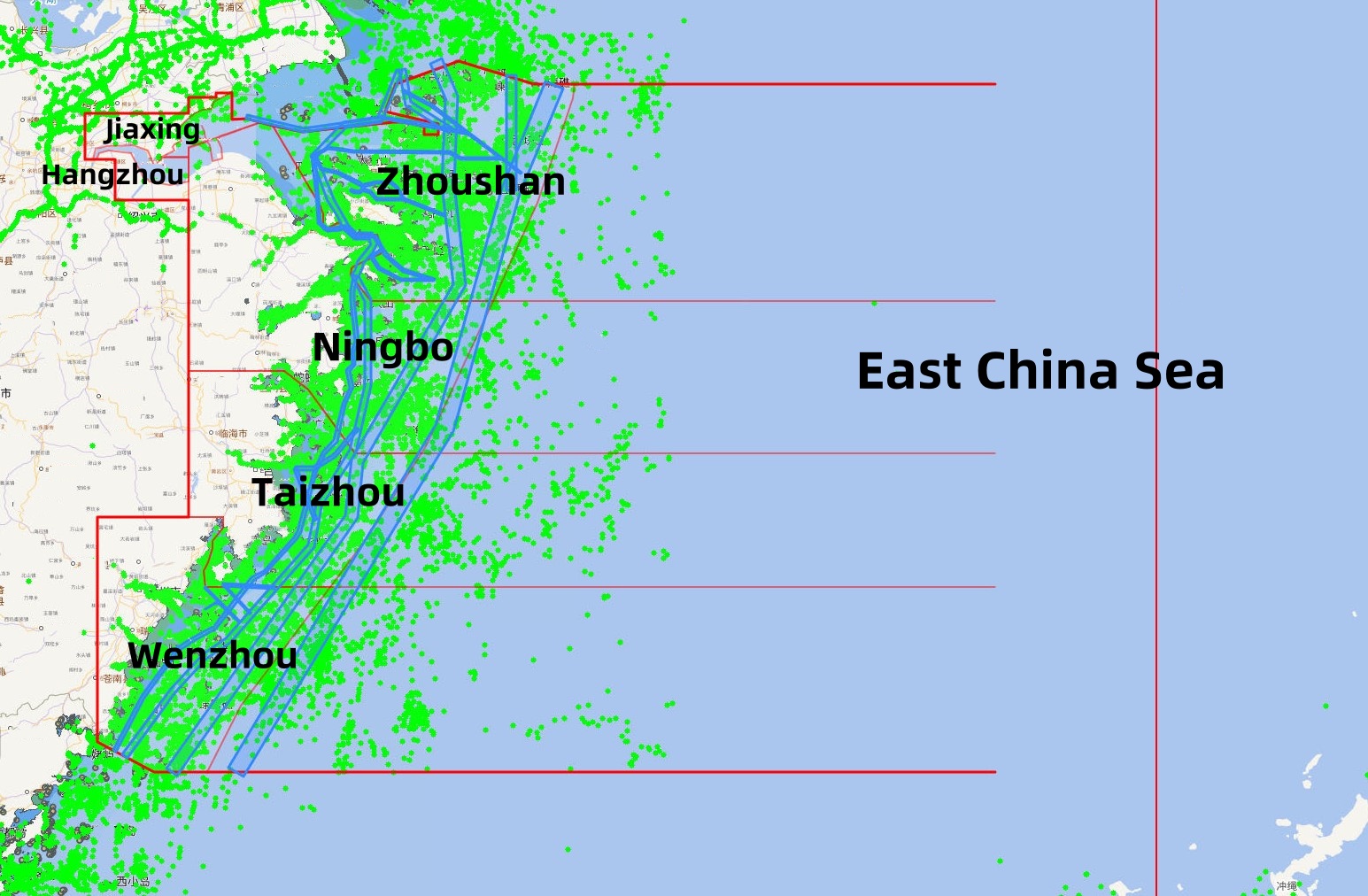 Zhejiang Maritime Safety Administration Issues the “
Zhejiang Maritime Safety Administration Issues the “ 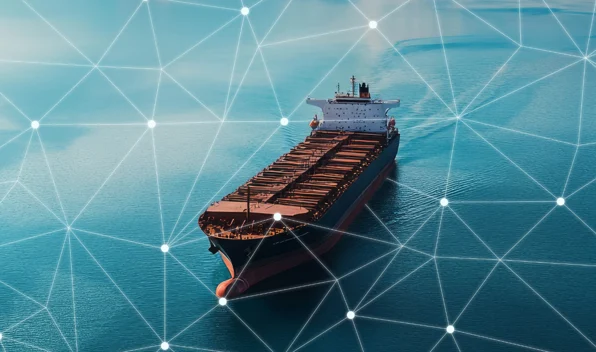 RightShip Updates Age Trigger for Vessel Inspection
RightShip Updates Age Trigger for Vessel Inspection 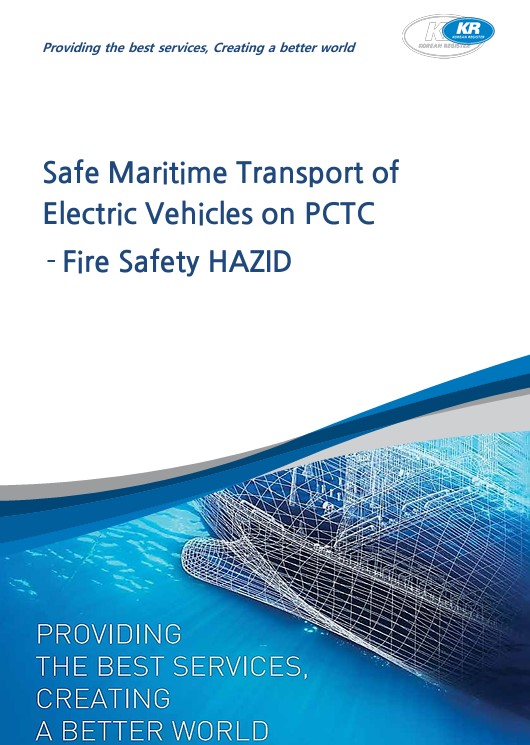 KR Publishes Report on Safe Maritime Transport of E
KR Publishes Report on Safe Maritime Transport of E